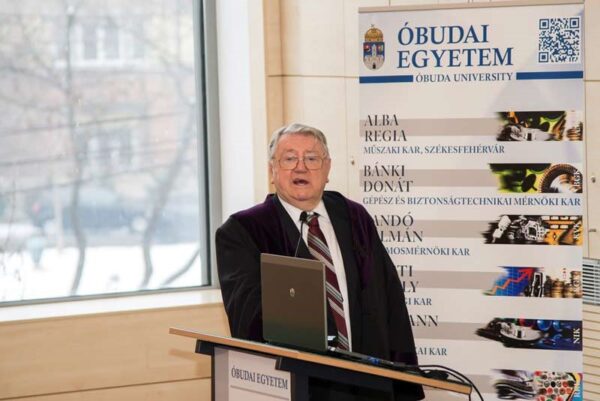Prof. Dr. András Prékopa
András Prékopa (September 11, 1929 – September 18, 2016) was a Hungarian mathematician, a member of the Hungarian Academy of Sciences. He was one of the pioneers of stochastic programming and has been a major contributor to its literature. He amended one of the three basic model types of the discipline, chance-constrained programming, by taking into account stochastic dependence among the random variables involved. One of his main results in the area concerns the convexity theory of probabilistically constrained stochastic optimization problems.

He introduced the concept of logarithmic concave measures and provided several fundamental theorems on logconcavity, which supplied proofs for the convexity of a wide class of probabilistically constrained stochastic programming problems. These results had impact far beyond the area of mathematical programming, as they found applications in physics, economics, statistics, convex geometry and other fields. He received his university diploma as teacher of mathematics and physics from the University of Debrecen in 1952.
In 1952, he became a Ph.D student (aspirant) at the Institute for Applied Mathematics of the Hungarian Academy of Sciences (HAS) and defended his thesis, entitled “On Stochastic Set Functions”, in 1956. His advisor was Alfréd Rényi.
Between 1956 and 1968 he was first assistant, later associate professor at the department of probability theory of the L. Eötvös University. In 1968, he became full professor at the department of mathematics of the Technical University of Budapest, where he remained until 1983. In that year he returned to the Eötvös University, and became the founder, professor and first chairman of the Department of Operations Research (OR).
He retired from there in 2000. From 1985 until 2015, he was a distinguished professor of OR, statistics and mathematics at Rutgers University. He was also the graduate director of the Ph.D program in OR. In 2015 he retired from Rutgers as a distinguished professor emeritus. Prékopa’s part-time appointments were also important in his scientific career in Hungary. In 1958, he founded the first research department in OR at the Mathematics Institute of the HAS and in 1977 the department of applied mathematics at the Computing and Automation Institute of the HAS.



